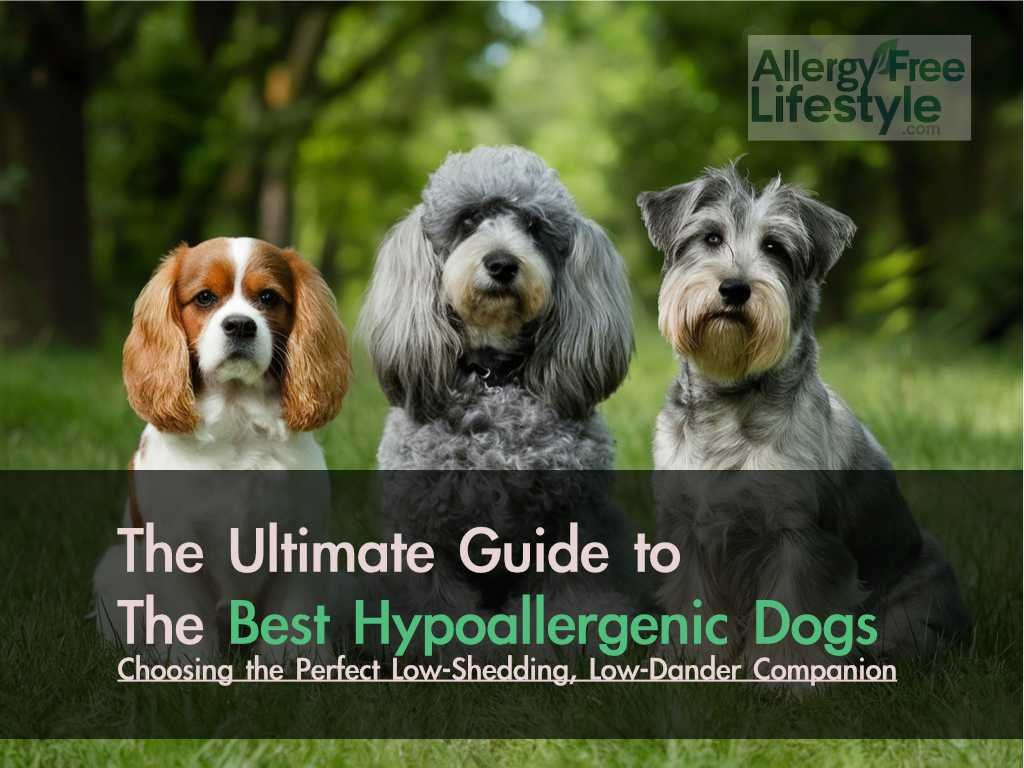The allure of German Shorthaired Pointers (GSPs) is undeniable. Their boundless energy, sleek physique, and captivating intelligence often ignite a desire for canine companionship. However, a crucial question arises for individuals with dog allergies: “Can I, despite my allergies, share my life with a GSP? Are German Shorthaired Pointers Hypoallergenic? ” To answer these definitively, we embark on a deep dive into the science of dog allergies, explore the complexities of dander production and individual sensitivities, and navigate the realities of responsible pet ownership for allergy sufferers.

Hypoallergenic Dogs – Do They Exist?
The notion of a truly “hypoallergenic” dog breed is a common misconception that often leads to unrealistic expectations for individuals with allergies. The fundamental reality is that all dogs, regardless of breed, produce a protein called Can f 1. This protein, found in their saliva and skin flakes (dander), is the primary culprit behind dog allergies, triggering reactions in individuals with sensitivities. While factors like coat length and shedding can influence the amount of dander released, no dog breed is entirely allergen-free.
Beyond the Surface: Delving into the Science of Dog Allergies
Understanding dog allergy science is crucial to navigating the complexities of living with a canine companion when sensitivities exist. Here’s how Can f 1 triggers reactions in individuals:
- Production and Spread: Dogs naturally produce Can f 1 through their saliva and shed it through grooming and flaking skin cells (dander). This dander becomes airborne and easily settles on furniture, bedding, clothing, and various surfaces within the home environment.
- Exposure and Response: When individuals with dog allergies come into contact with dander containing Can f 1, their immune system mistakenly identifies it as a threat and triggers an inflammatory response. This response is an attempt to “fight off” the perceived invader, leading to the manifestation of various symptoms.
- Symptoms: These symptoms can range from mild discomfort to severe reactions and include:
- Itchy, watery eyes
- Runny or stuffy nose
- Sneezing
- Coughing
- Wheezing
- Skin rash (hives)
German Shorthaired Pointers: A Popular Breed with Dander Potential
While GSPs are often perceived as relatively low-shedding compared to some breeds, they are not considered hypoallergenic. They possess a short, dense double coat that sheds seasonally and requires regular brushing. This shedding process significantly releases dander particles into the environment, potentially triggering allergic reactions in individuals sensitive to Can f 1.
Individual Sensitivities: Navigating the Spectrum of Reactions
Even though GSPs are not hypoallergenic, the severity of allergic reactions can vary significantly from person to person. This variability stems from individual differences in immune system responses and sensitivity levels. Some individuals might experience mild discomforts like occasional sneezing or itchy eyes, while others might have severe reactions like wheezing or anaphylaxis. Consulting a healthcare professional for allergy testing is paramount. This testing can provide valuable insights into your specific sensitivity level and help develop personalized management strategies. These strategies, tailored to your individual needs, might include:
- Medication: Antihistamines, nasal corticosteroids, and bronchodilators can alleviate allergy symptoms by reducing inflammation and blocking the release of chemicals involved in the allergic response.
- Environmental Control: Implementing a comprehensive cleaning regimen is crucial. Regularly vacuuming carpets, upholstered furniture, and bedding with a HEPA filter vacuum cleaner significantly reduces airborne dander levels. Washing bedding and other fabrics frequently in hot water (at least 130°F/54°C) further minimizes allergen exposure. Air purifiers with HEPA filters can also help capture airborne dander particles.
- Lifestyle Adjustments: Limiting direct contact with the dog, especially in areas where they sleep or spend significant time, can minimize exposure to dander. Implementing designated “dog-free” zones in the home, such as bedrooms, can provide allergy sufferers with a safe haven.

Exploring Alternatives and Responsible Pet Ownership: Beyond GSPs
While GSPs might not be the ideal choice for individuals with severe allergies, the desire for canine companionship shouldn’t be entirely extinguished. Here are some alternative avenues to consider:
- Hypoallergenic Breeds: Certain breeds, such as poodles, bichon frises, and Maltese, are often touted as “hypoallergenic” due to their lighter shedding and potentially lower Can f 1 production. However, it’s crucial to remember that individual sensitivity still plays a role, and no breed is truly hypoallergenic. Before considering adoption, consulting a healthcare professional and spending time with specific dogs are essential steps.
- Meeting Potential Dogs: Spending supervised time with a specific GSP before adoption can help gauge your individual reaction to their dander. However, it’s important to remember that short interactions might not reveal long-term allergy triggers. Consider fostering a GSP for a trial period to gain a more comprehensive understanding of your individual response. This allows you to experience the joys of canine companionship while monitoring your allergies in a controlled environment.
Building a Relationship with Your Dog: Considerations for Allergy Sufferers
Even with careful planning and allergy management strategies, living with any dog, including a GSP, requires certain considerations for individuals with allergies. Here are some key points to remember:
- Maintain Consistent Cleaning: Upholding a rigorous cleaning routine is crucial. Regularly vacuuming, washing bedding and fabrics, and wiping down surfaces can significantly reduce dander accumulation.
- Invest in Air Purification: Utilizing air purifiers with HEPA filters in your home can further capture airborne dander particles, reducing exposure and alleviating symptoms.
- Embrace Outdoor Activities: Engaging in outdoor activities with your GSP can minimize indoor exposure to dander. Regular walks, playtime in the backyard, and outdoor training sessions provide opportunities for bonding and exercise while reducing indoor allergen levels.
- Prioritize Communication with Veterinarians: Maintaining regular communication with your veterinarian is essential. They can offer guidance on managing your pet’s skin health, which can indirectly impact dander production.
Conclusion: A Balanced Approach to Canine Companionship and Allergies
While German Shorthaired Pointers, like all dog breeds, are not truly hypoallergenic, understanding the science of dog allergies, exploring individual sensitivities, and implementing management strategies can pave the way for responsible pet ownership for allergy sufferers. Consulting a healthcare professional for allergy testing, exploring alternative solutions, and prioritizing a clean and healthy environment can create a harmonious living space for you and your potential canine companion. Remember, responsible pet ownership also involves considering the well-being of the animal. Suppose your allergies are severe and managing them while caring for a dog proves challenging. In that case, exploring alternative ways to connect with dogs, such as volunteering at animal shelters, might be a more suitable option.
Ultimately, a balanced approach that prioritizes both human health and animal welfare is crucial when navigating the complexities of dog allergies and the desire for canine companionship.



